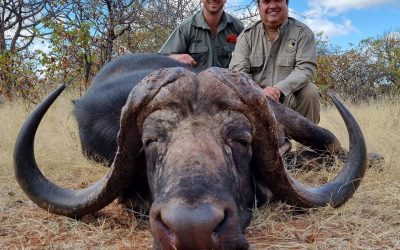So you’ve got your sights set on hunting in Africa, but you want to make sure you do it in a way that respects the environment and wildlife. In this article, we’ll explore the best practices for hunting ethically and sustainably in Africa. From understanding the local regulations to supporting conservation efforts, we’ll cover everything you need to know to ensure your hunting experience is both ethical and sustainable. Whether you’re a seasoned hunter or a newbie looking to embark on an African adventure, this article is here to guide you on your journey.
Understanding Ethical and Sustainable Hunting in Africa
When it comes to hunting in Africa, it is crucial to do so ethically and sustainably. Ethical hunting refers to the practice of hunting in a compassionate and respectful way, ensuring the welfare of the animals involved. On the other hand, sustainable hunting focuses on preserving the ecosystem and wildlife for generations to come. By following these principles, we can ensure the longevity of African wildlife and contribute to conservation efforts.
Defining Ethical Hunting
Ethical hunting is centered around humane and responsible practices. It involves treating animals with respect, minimizing suffering, and adhering to ethical guidelines. This means making an effort to take clean shots to ensure a quick and ethical kill, using methods that are both legal and humane, and practicing fair chase principles to give animals a fighting chance.

Defining Sustainable Hunting
Sustainable hunting revolves around the idea of using natural resources in a way that does not deplete them and contributes to the long-term health of the ecosystem. It involves managing hunting activities to avoid overexploitation, ensuring the populations of targeted species remain stable, and preserving the natural habitats of wildlife. Sustainable hunting promotes a balance between the needs of hunters and the needs of the environment.
Research and Education
Before embarking on a hunting expedition in Africa, it is crucial to gather knowledge about local laws and regulations. Each country has its own set of rules regarding hunting, and it is essential to abide by them to avoid legal repercussions. Familiarize yourself with the specific permits, licenses, and bag limits required.
Understanding wildlife conservation is another vital aspect of ethical and sustainable hunting. Educate yourself about the conservation status of the species you plan to hunt and the initiatives in place to protect them. This knowledge will guide your hunting practices and ensure that you are contributing positively to conservation efforts.
In addition to understanding the conservation efforts, studying species behavior and habitat is equally important. Learning about their habits, migration patterns, and preferred habitats will enable you to make informed decisions while hunting. By being knowledgeable about the animals you pursue, you can increase your chances of success and minimize unintended negative consequences.

Engage Local Communities
When hunting in Africa, it is essential to collaborate with local communities. Engaging with local stakeholders is not only respectful but crucial for sustainable hunting. Local communities often have a wealth of knowledge about wildlife and ecosystems, and their involvement can lead to better conservation outcomes.
Respecting local customs and traditions is also vital. As visitors in a foreign land, it is important to be mindful of cultural norms and show respect for local traditions. By understanding and honoring these customs, hunters can foster positive relationships with local communities, which can lead to better conservation efforts.
Promoting economic benefits is another way to engage local communities. Responsible hunting can provide economic opportunities for locals through employment in hunting outfitters, lodges, or community-based conservation projects. By supporting these initiatives, hunters can contribute directly to the well-being of the communities they interact with.
Adopting Fair Chase Principles
Fair chase principles are fundamental to ethical hunting. Avoiding high-fence hunting is one of the key aspects of fair chase. Hunting within enclosed areas may limit the animal’s ability to escape and exhibit natural behaviors, which goes against the principles of ethical hunting. Fair chase encourages hunters to pursue animals in their natural environments, giving them a fair chance to escape.
Using ethical and legal hunting tactics is another crucial aspect of fair chase. This means adhering to all applicable hunting regulations, such as bag limits and seasons. It also involves using hunting methods that ensure a quick and humane kill, such as choosing appropriate calibers and shot placements.
Minimizing the use of technology is another way to adhere to fair chase principles. While technology can enhance hunting success, relying solely on it can compromise the ethics of the hunt. Embrace traditional hunting methods and limit the use of technological aids to maintain the spirit of fair chase.

Practice Selective Hunting
Selective hunting involves targeting specific species and individuals. It is important to be knowledgeable about the population dynamics of the species you are targeting. Avoid hunting species that are endangered or already in decline, as this can have severe ecological ramifications. By selectively targeting mature animals, hunters can contribute to population management efforts and allow younger individuals to grow and reproduce.
Considering the ecological impact is also essential when practicing selective hunting. Assess the role of the species you plan to hunt within the ecosystem and ensure their removal from the population will not disrupt the balance. By understanding the ecological context, hunters can make informed decisions that minimize negative environmental consequences.
Minimizing Waste and Trophy Hunting
To ensure ethical and sustainable hunting, hunters should strive to utilize all parts of the animal. This means avoiding wastage and using all edible portions of the animal. By respecting the animal and making the most out of the harvest, hunters can minimize waste and contribute to sustainable hunting practices.
Furthermore, it is important to avoid trophy hunting for sport. Trophy hunting, where animals are hunted solely for their trophies, can have negative conservation implications. Instead, focus on the meat and other useful parts of the animal, and avoid unnecessary killing or hunting solely for personal gain.
Supporting sustainable land use is another way to minimize waste. By encouraging responsible land management practices, such as habitat restoration and preservation, hunters can contribute to the overall health of the ecosystem and ensure the long-term viability of hunting opportunities.
Encouraging meat consumption is also a sustainable approach to hunting. By promoting the utilization of game meat, hunters can reduce the demand for commercially raised meat and contribute positively to sustainable food systems.
Preventing Illegal Hunting and Poaching
As responsible hunters, it is crucial to report any illegal hunting activities you witness. Illegal hunting and poaching contribute to wildlife depletion and can have severe consequences for populations and habitats. By reporting such activities to the appropriate authorities, you contribute to the enforcement of wildlife protection laws.
Supporting anti-poaching efforts is another way to combat illegal hunting. Collaborate with local organizations or initiatives dedicated to wildlife protection and contribute your time or resources to their cause. By actively supporting anti-poaching efforts, hunters can play a significant role in safeguarding Africa’s wildlife.
Encouraging stricter law enforcement is also important to prevent illegal hunting. Advocate for stronger penalties and enforcement measures to deter potential poachers. By shedding light on the issue and promoting stricter regulations, hunters have the power to protect African wildlife.
Choosing Responsible Hunting Outfitters
When planning a hunting trip in Africa, it is essential to choose responsible hunting outfitters. Research different outfitters and consider their reputation and practices. Look for outfitters that prioritize ethical hunting, sustainable practices, and community engagement. Verify their compliance with local regulations and ensure they have the necessary permits and certifications.
Promote Sustainable Tourism
Supporting eco-tourism initiatives is a great way to contribute to sustainable hunting practices. Many outfitters and lodges incorporate eco-tourism into their operations, promoting wildlife conservation and providing economic benefits to local communities. By choosing to hunt with these organizations, you can actively support sustainable tourism initiatives.
Engaging in responsible photography is another way to promote sustainable tourism. Take the time to appreciate the beauty of the wildlife without interfering with their natural behavior. Respecting their space and not causing unnecessary stress or disturbance is crucial for ethical wildlife photography.
Contributing to local conservation projects is also vital. Many organizations and initiatives rely on funding and support from visitors to continue their conservation efforts. By donating your time or resources, you can directly contribute to the conservation of African wildlife and habitats.
Continued Monitoring and Evaluation
To ensure the effectiveness of ethical and sustainable hunting practices, regular monitoring and evaluation are necessary. Assess the impact of your hunting practices on the environment and wildlife populations. Stay informed about the latest developments and research in wildlife conservation to adapt and adjust your hunting practices for improvement.
By consistently evaluating and evolving hunting practices, we can strive towards a more ethical and sustainable future for hunting in Africa. Through education, engagement, responsible practices, and monitoring, hunters can make a significant positive impact on wildlife conservation and ensure the preservation of Africa’s natural heritage for generations to come.











